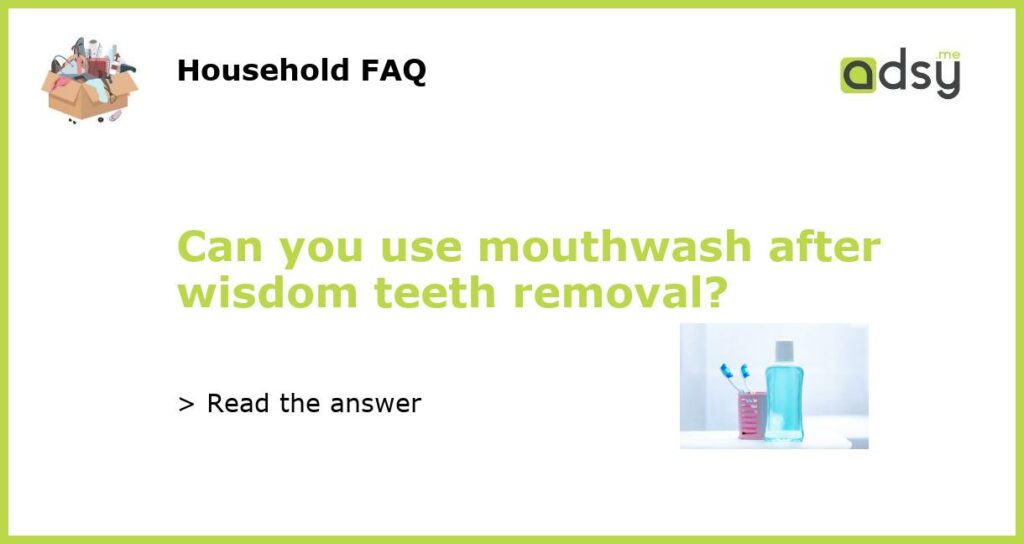Using Mouthwash After Wisdom Teeth Removal: What You Need to Know
If you just had your wisdom teeth removed, you may be experiencing pain, swelling, and a number of other unpleasant symptoms. To promote healing and reduce the risk of complications, you’ll need to take care of your gums and avoid certain activities, including drinking through a straw and smoking. But what about using mouthwash?
The Short Answer: It Depends
Whether you can use mouthwash after getting your wisdom teeth removed depends on a few factors, including your individual recovery process and the type of mouthwash you want to use. While you might think that rinsing your mouth out with mouthwash is a good way to promote oral health and get rid of bacteria, there are some things you need to consider.
Understanding the Risks
One of the biggest risks associated with using mouthwash after wisdom teeth removal is dislodging the blood clot that’s formed over the extraction site. When this happens, it can lead to a condition called dry socket, which can cause severe pain and delay the healing process. Additionally, some types of mouthwash contain ingredients that can irritate your gums and prolong your recovery time.
What to Do Instead
If you want to promote oral health and keep your mouth clean after getting your wisdom teeth removed, there are a few safer alternatives to using mouthwash. Your dentist will likely recommend that you rinse your mouth out gently with saltwater several times a day, which can help reduce swelling and prevent infections. Additionally, you can try using a warm compress to alleviate pain and swelling in your cheeks.
Consult Your Dentist
If you’re not sure whether you should be using mouthwash after wisdom teeth removal, your dentist can help. They can evaluate your specific situation and recommend a course of action that’s tailored to your needs. If you do decide to use mouthwash, they can also help you determine the best type of mouthwash to use and how often you should use it.






